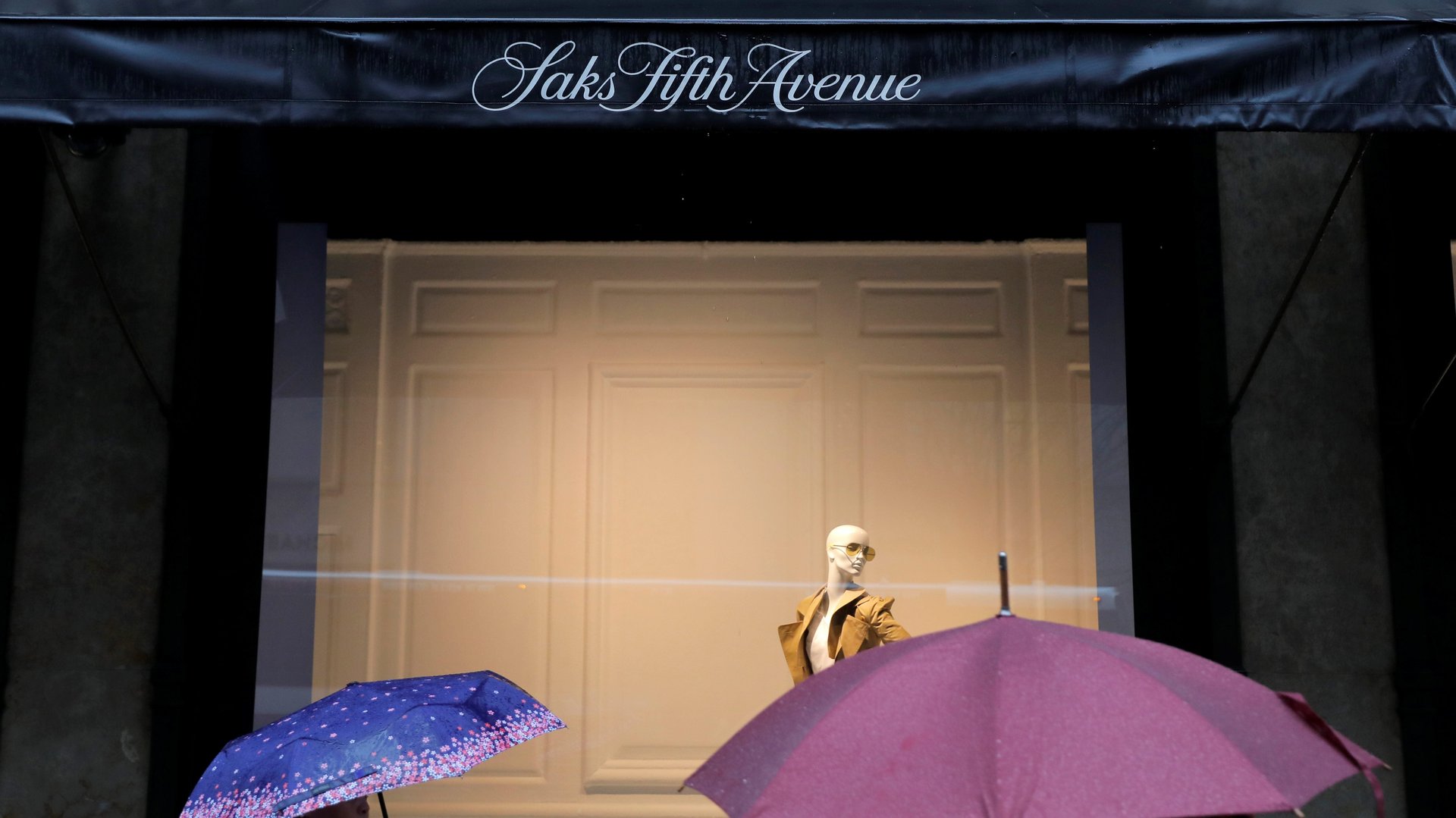Saks is turning its back on department stores
Saks Fifth Avenue made its name as one of the world’s glitziest department stores. Now its owner, Hudson’s Bay Company (HBC), is admitting that stores are not where the business’s future value lies.


Saks Fifth Avenue made its name as one of the world’s glitziest department stores. Now its owner, Hudson’s Bay Company (HBC), is admitting that stores are not where the business’s future value lies.
HBC is splitting Saks’s e-commerce business into a separate company and has sold a minority stake to venture-capital firm Insight Partners for $500 million. The deal values the new standalone business, to be known simply as Saks, at $2 billion, HBC said in an announcement today.
Saks currently operates 40 department stores and 110 outlet locations, according to HBC. Customers aren’t expected to see any noticeable changes in their shopping experience, the Wall Street Journal reported, and will still be able to return items to stores that they bought online.
But companies tend to engineer these splits in order to separate an underperforming part of the business from the piece that’s growing. During the pandemic, fashion e-commerce has boomed while sales at clothing stores have suffered. The deal will allow Saks to funnel investment into the digital part of the business, without having to carry the dead weight of stores, and leverage the power of its globally recognized, century-old brand online.
“The core of the deal is separating the online business from the store business, pulling it out of Hudson Bay, and really being able to invest much more heavily in technology and site experience to have Saks be the best in class,” says Deven Parekh, managing director at Insight Partners and lead investor on the deal. “As part of Hudson Bay, it has not been able to make the necessary investments to really be competitive in the online space.”
Luxury e-commerce has become a hot market. Germany’s MyTheresa, an online retailer of high-end fashion, had a successful IPO this year and has reported strong growth, with sales rising 33% in the quarter through Dec. 31. Luxury platform Farfetch has also soared, with revenue surging 64% in 2020.
Parekh points out that luxury companies have been somewhat insulated from the economic shocks of the pandemic. At the same time, Covid-19 has accelerated the shift to online shopping, including for luxury goods. Insight Partners has a number of e-commerce investments and expects to contribute its own expertise in developing Saks’s online presence.
The new digital business will operate both on a traditional retail model—where Saks is buying goods from brands and then selling them to shoppers—and as a marketplace, it said in its announcement. It suggests Saks is building an online platform where brands themselves could set up shop.
Another focus will be increasing international sales in regions such as Europe and Asia, where the Saks brand has name recognition but little online presence. “Visiting the Saks store is a rite of passage for tourists around the world,” Parekh says. “Being able to now take that brand that’s got that global footprint, and then actually being able to leverage that online is absolutely part of the strategy.”